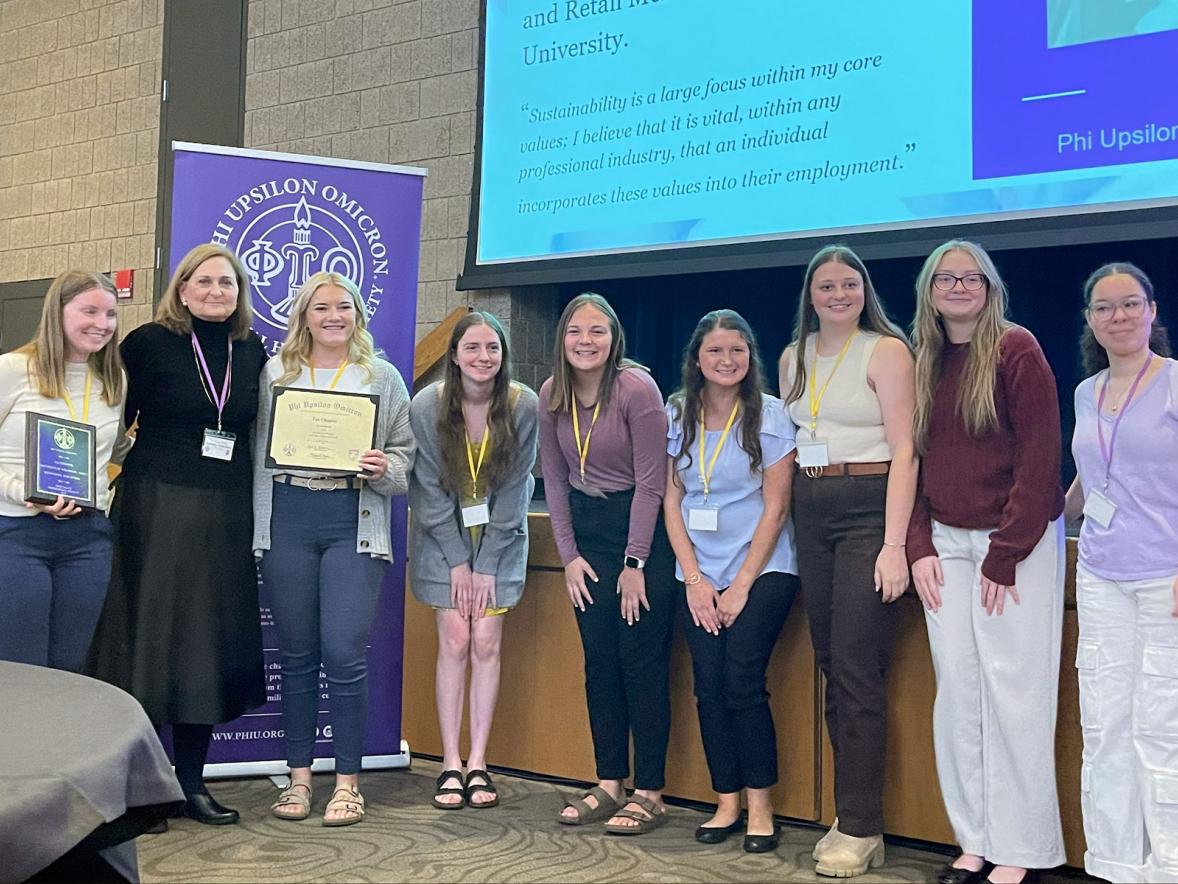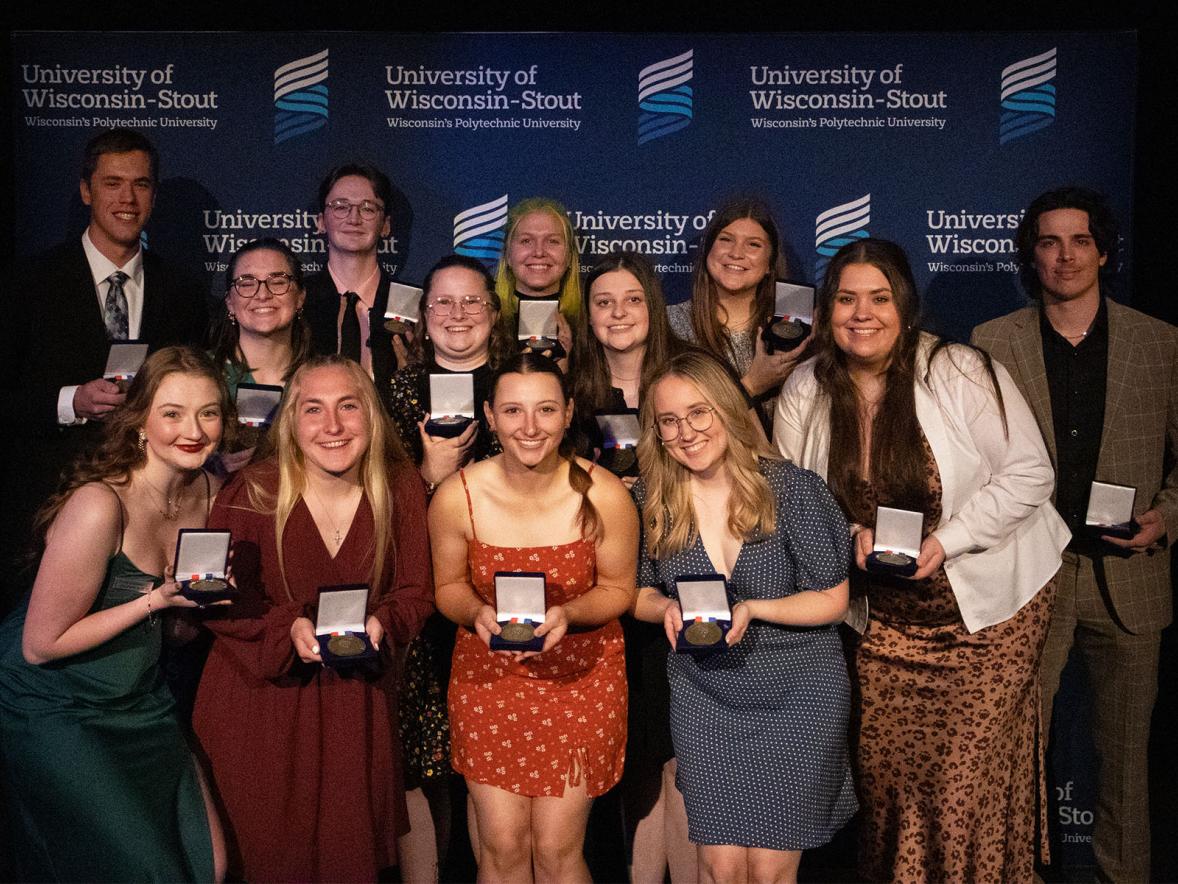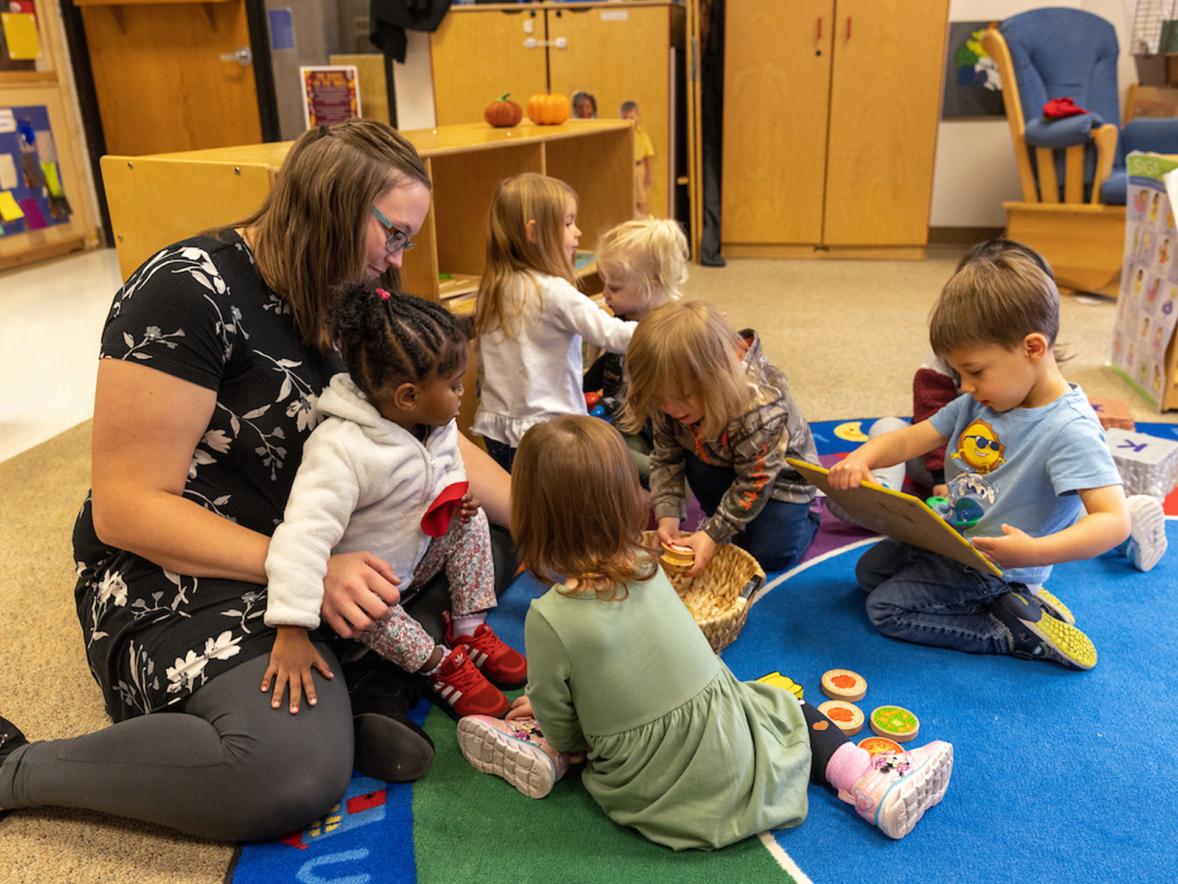Joan Herwig started her education in a one-room country school in Deansville, Wis. Her experiences there and in Lodi, Wis. schools, under the guidance of inspiring teachers, led her to pursue a degree in home economics education at UW-Stout.
“I had long wanted to teach. I never had any doubt,” Herwig said. “My vision for my future to lead a wonderful life was to study at Stout, earn a degree and teach in Wisconsin. Things turned out quite different.”
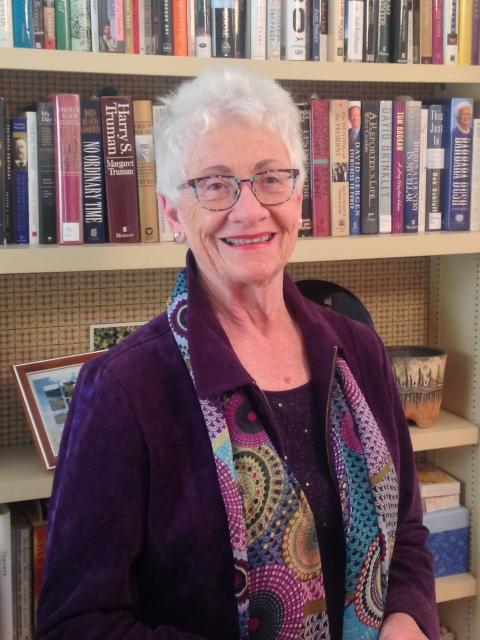
Herwig said UW-Stout accelerated her academic life. She named two major factors that changed her career path. First, in the fall of her junior year in 1963, she was selected as a UW-Stout representative to attend Merrill-Palmer Institute in Detroit.
Her courses centered around the institute’s mission to promote and improve the development and well-being of children and their families. She witnessed the creation of Head Start, her instructors having a key role in the development of the national standards for the program.
“At that time, Stout did not offer an early childhood education degree,” Herwig said. “My experience at Merrill-Palmer forever changed my content area from broad home economics to child development.”
The second factor that changed Herwig’s career path was a Student National Education Association meeting concerning academic careers as university and college faculty. “I remember a feeling of ‘ah-ha.’ Whoever thought about that – of higher education as a career path? These experiences specific to Stout opened so many doors for me.”
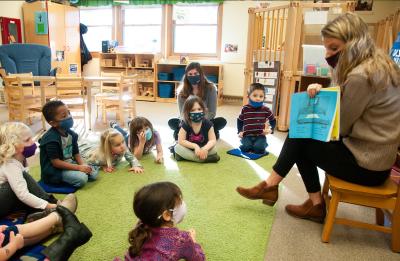
Herwig, a first-generation student from a large family, graduated with her bachelor’s in 1965. Now in her late 70s, looking back at her career, Herwig wants to support students seeking a similar path.
Through the Stout University Foundation, she has established the Dr. Joan Herwig Early Childhood Education Endowed Scholarship, designed for first-generation early childhood education juniors.
Herwig’s gift of $50,000 will award a $1,750 scholarship annually, starting in the 2022-23 academic year.
Leading to higher education
The first four years after she graduated, Herwig taught home economics and English to seventh- and eighth-graders in Port Huron, Mich. In the summers, she taught and led the district’s Head Start program, seeing firsthand how the program envisioned at Merrill-Palmer benefited young students and their families.
Herwig remembered a 5-year-old Head Start student named Kathy, who often forgot to wear her glasses and came to school hungry. On a home visit, Herwig talked with Kathy’s older sister, an eighth-grade home economics student of hers during the regular school year. Herwig’s student promised she would help her younger sister remember her glasses and have breakfast each morning before leaving the house.

“I was working with more than the Head Start children. I worked with their older brothers and sisters too. I made connections with their families,” she said.
From Port Huron, Herwig moved on to earn her master’s from Iowa State and her Ph.D. from Purdue, both in child development, and taught child development at Iowa State from 1971 until her retirement in 2003 as professor emeritus.
In that time, she had opportunities to travel the world as an educator, researcher and early childhood advocate. She was a Fulbright Scholar in 1991 and 1992, working with faculty across India in early childhood education and development. Soon after, she was invited to attend an international symposium in Zurich, Switzerland, which led to an unexpected encounter.
After the symposium, she traveled with a friend through the Alps and stayed in a Swiss hotel. One day, they wandered into a meeting room, where small Rotary International banners were displayed.
“It so happened that the first banner she saw was from Menomonie, Wisconsin,” she said. “I could hardly believe it. It was one of those stunning things in life that characterize the out-of-the-blue things that can happen.”
Making a foundational difference
Herwig believes early childhood education is the foundation in building a child's developmental, social, and academic progress. She has seen countless early childhood education students make a difference in the lives of children and their families.
“The early years are essential, and the higher quality experience we can offer children and their families, the more optimal their development, which benefits all,” she said.
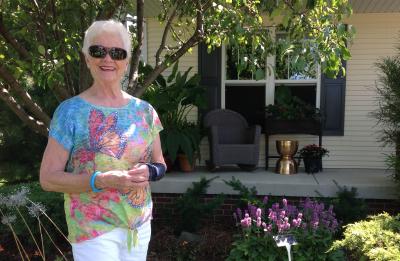
Herwig wanted to create an endowed scholarship because she understands the support systems for first-generation students are different. “You don’t have that connection at home to help you navigate and feel more confident,” Herwig said. “You rely on the university, your adviser and your fellow students to show you options and to help believe in yourself.”
She hopes the scholarship helps alleviate some financial pressure for recipients to help them focus on academics and internships rather than work. And she encourages graduates to share their best practices beyond their place of work – to see the possibilities in administrative roles, serving as advocates in professional organizations and creating new legislation to promote the importance of childhood, funding and curriculums offered.
“I hope they see themselves as change-agents in the broader world around them, wherever they are. I hope they dream big and dare to adventure. There’s a big world out there,” Herwig said. “The potential is there. Invite the people around you to keep learning. They may want to be adventurers too. Take a risk sometimes even if it’s not comfortable.”
“I could not have envisioned the possibilities without my Stout experiences,” she added.





